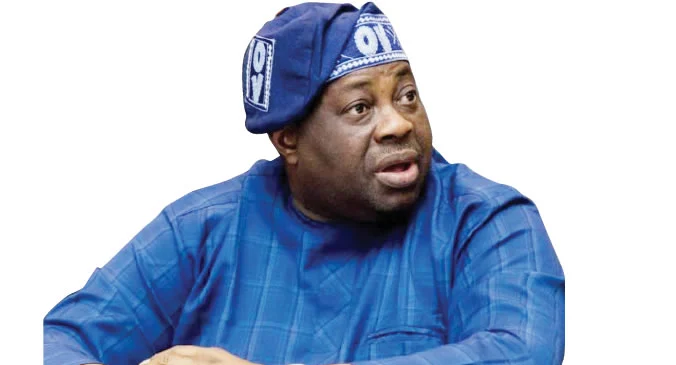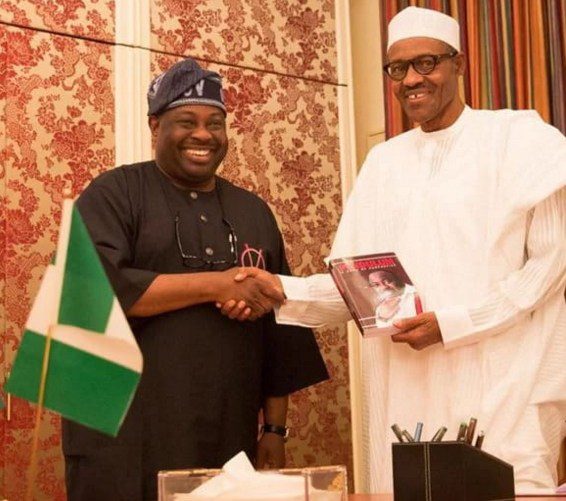Greatness started in the realm of human creation in eight stages of human development, according to ego psychologist Erik Erikson: a form of ascending from being an infant to toddlerhood to preschool years to early school years to adolescence to young adulthood to middle adulthood to late adulthood. I could imagine how the growth of a child will turn out to be great if it is not the assemblies, interactions, continuous learning (thorough and compendious), and affections both covert and overt. This is the citadel that a man called Dele Momodu spurted from; his journey into the rise of success cannot be underestimated with the level of dedication, diligence, dutifulness, and hard work. His interpersonal relationships are superb and imbued with a high sense of humility as he celebrated his 65th birthday last week with encomiums showering on him from friends, families and well-wishers all over the world.
Dele Momodu mounted the ladder of greatness with consistency and tenacity from his mother’s advice that he should not give up, from being a graduate of Yoruba language at the University of Ife (now Obafemi Awolowo University) to obtaining a master’s degree in English Literature, growing up to establish his own brand of magazine and newspaper, proving the golden word of an adage that says a child who knows how to wash hands will eat with the elders.

One unique relationship that paved the way for Dele Momodu is that of Chief Moshood Kashimawo Olawale Abiola (MKO) that was both professional and deeply personal, rooted in shared ideals and a commitment to Nigeria’s democratic future. Ovation Magazine’s dream started when Momodu began his journey with MKO in 1988 when he joined the Concord Group of Newspapers, owned by Abiola. He started as a staff writer for African Concord magazine; Momodu quickly soared through the ranks, becoming the pioneer staff of Weekend Concord and later its news editor. His dedication and editorial prowess secured him the position of literary editor at Classique, a celebrity magazine owned by May Ellen Ezekiel, making him one of Nigeria’s highest-paid editors at the time.
This brings the deeply personal and transformative story about a life-changing experience he narrated in the midst of his friends that Chief Moshood Kashimonwo Abiola ordered him to visit him in his home through a call from his godfather, Chief Alex Duduyemi, who sensed his distress in London. He was on the brink of suicide due to financial despair and personal struggles when driving aimlessly in London, overwhelmed by a sense of failure. This timely intervention led to a profound conversation that helped him regain hope and purpose. And surprisingly, MKO gave him a cheque for 4,000 pounds in a banter exchange with Bashorun and asked him, ‘Can’t you put a signature on the thigh of a woman?’ The statement that changed his life is ‘Daddy, I don’t have money’. In 1991, it was a huge sum of money for the Ovation Magazine boss; he utilised it wisely to form his empire that upstaged the relevance in the world at large. Momodu described his emotional reaction to this act of kindness, highlighting Abiola’s generosity and the profound impact it had on him. These stories not only shed light on Dele Momodu’s personal journey but also underscore the themes of resilience, divine intervention, and the profound influence of mentorship and generosity in shaping lives.

Dele Momodu and Buhari
One crucial attraction you cannot keep off Akinrogun of Gbonganland is the testimony Sextus gave Marcus Aurelius in his book Meditations that “To show intuitive sympathy for friends, tolerance to amateurs and sloppy thinkers. His ability to get along with everyone: sharing his company was the highest of compliments, and the opportunity an honour for those around him.” Apollonius’ admonition in the same book is “to have learnt how to accept favours from friends without losing your self-respect or appearing ungrateful”. This is why you will see Momodu as a centre of attraction to the world of politicians, business moguls, celebrities, and monarchs.
Dele Momodu is widely recognised for his ability to maintain relationships across Nigeria’s complex political landscape. His network includes influential figures from various political parties and ideologies, and he has often been seen navigating these differences with a combination of tact, diplomacy, and a commitment to national unity. As a media icon in Africa, for promoting African excellence and culture, his work has helped in bridging the gap between Africans in the diaspora and those on the continent, making him one of the most respected figures in Nigerian media and public life.

Dele Momodu and Tinubu
Dele Momodu has paid his dues to journalism; may politics pay him too!
Temitayo writes from Benin City, Edo State Capital


![[OPINION] Dele Momodu At 65: A Journey Of Dedication, Diplomacy, And Distinction - Abdulrofiu Muhammed Temitayo](/media/k2/items/cache/00a096cb68ce9e00fb7f0484c718b47c_XL.jpg)